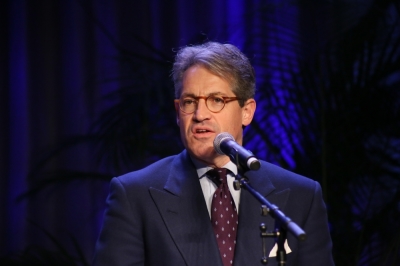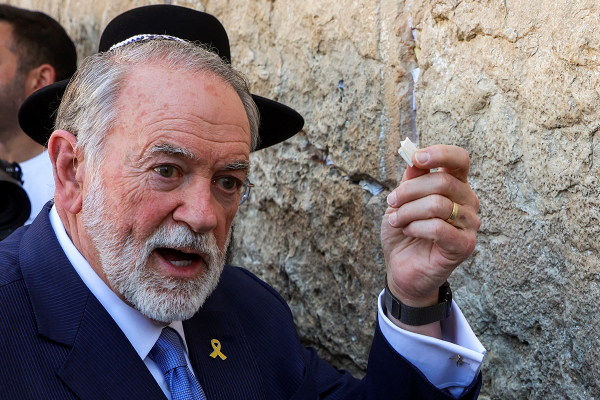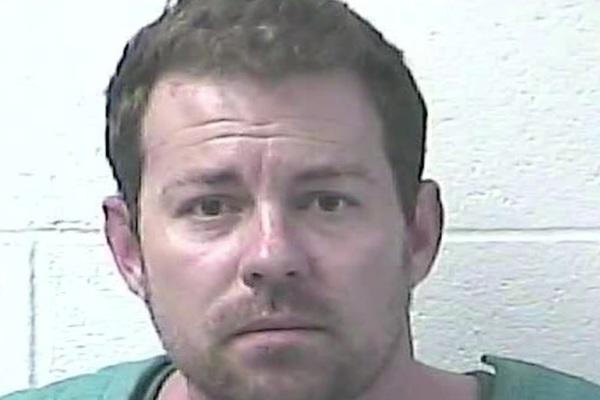Jesus Is Our Peace: Bridging the Racial Chasm
What happened on that August night in Ferguson, Missouri, between Michael Brown and officer Darren Wilson will probably never be known with any certainty. What is certain, though, is that the events of that evening and their aftermath have exposed the profound divide between Black and White in America. Those who spoke of a "post-racial America" in the immediate aftermath of Barack Obama's election six years ago now sound like hopeless Polyannas.

Nevertheless, there is hope for reconciliation and healing—just not in the political sphere.
That hope was expressed in a graphic that's been making the rounds of the internet recently. It's a doctored-up image to a recent New Yorker cover that depicted the St. Louis Gateway Arch with a gap at the top in between a black span and a white one, never quite meeting.
The new graphic bridges those two spans with a cross. It's the kind of thing that, on first blush, appears simplistic. But in this case appearances are definitely misleading.
To understand why, it's necessary to rehearse a painful history that many of us would prefer to relegate to the land of forgetfulness we label "the past."
There was, of course, the shame of chattel slavery—America's original sin. But even after formal emancipation, Blacks were relegated to second-class citizenship by a combination of law, custom, and the ever-present threat of violence, most graphically in the form of lynching, which claimed thousands of black lives.
And where were Christians when all of this was happening? Some of them opposed this evil, most notably northern abolitionists such as Charles Finney. But for every Finney, there many more who either defended the shameful status quo or were complicit by their silence.
The complicity was, if anything, more pronounced during what one historian famously called "The Strange Career of Jim Crow," which was enacted, enforced, and supported by people who could be found in church on Sunday mornings.
That's the tragic history. The hope lies in our embracing what the Apostle Paul wrote to the Ephesians, Jesus "himself is our peace, who has made us both one and has broken down in his flesh the dividing wall of hostility . . . So then you are no longer strangers and aliens, but you are fellow citizens with the saints and members of the household of God."
The early church was no stranger to ethnic division and even conflict. In Galatians, Paul tells of confronting Peter, who, even after his rooftop vision concerning the Gentiles, went along with those who refused to eat with Gentile believers. Paul insisted that "There is neither Jew nor Greek, there is neither slave nor free, there is no male and female, for you are all one in Christ Jesus."
Overcoming what people regard as "natural" divisions is an essential part of what it means to be the Church. It is a sign that points to the Kingdom to come where people from every nation, tribe, and people will stand before the Lamb on his throne.
Politics can never close the gap--and those who would stir people's passions towards violence certainly cannot.
Only the Cross, through which all of us have been reconciled to God and, thus, to each other, can end that hostility.





















